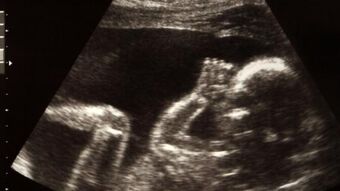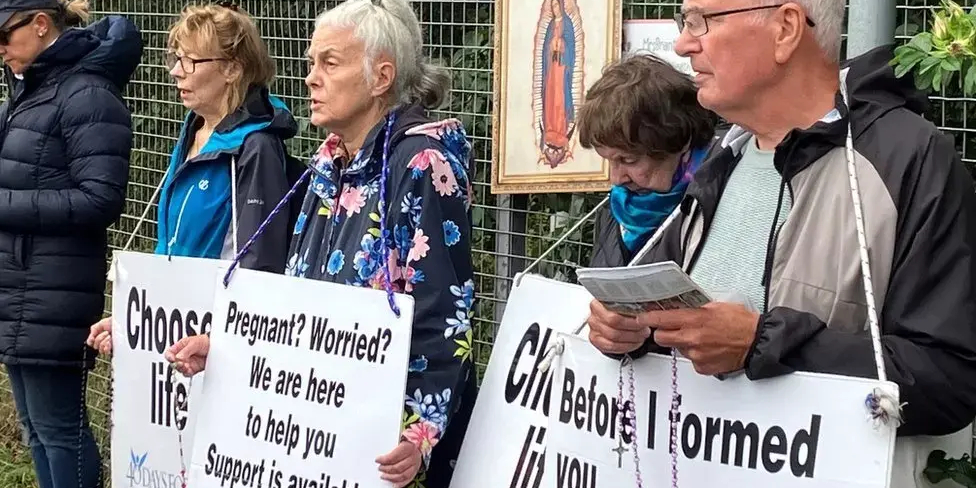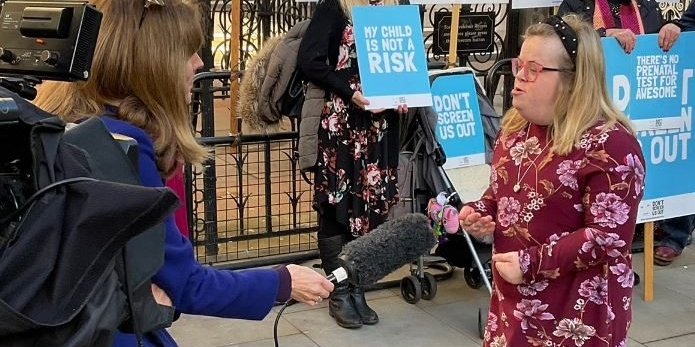Blog: Midnight conversations about abortion
Abortion
Many Thursday nights I have stood outside local clubs, with a group of Christian friends and students. The offer of a bottle of water acts as a prop to start a conversation. Our main aim? To tell and show those we meet the Gospel of Jesus Christ. Yet, the topic of abortion almost always comes up. Why is that?
I think there are two main reasons.
Firstly, a sense of intrigue. I’m a female and a student, yet I’m also a Christian and pro-life?! As a student, am I not “out-of-touch” with progressive movements? As a female, do I not believe I have the right to make decisions over my own body? As a Christian, why would I want to follow an old institution’s traditional views?
My views are seen as “unreasonable”.
Secondly, we chat about the good news of Jesus Christ - and that good news has implications for every aspect of life. This includes the life of the unborn - and thus abortion is usually a hot topic. As I begin to explain what I believe about the Bible and God’s plan of redemption, it becomes apparent how these beliefs have clear implications for my views on the value of human life.
The Gospel narrative (that good news of Jesus) begins at creation. A contentious topic, no doubt, but we explain to the many students we meet on these nights that the Bible teaches God is the creator of all. That the eternal God created the universe, and all of life and remains intimately involved in his creation. If I believe all humans are created by God (Genesis 1:27), I am saying that this includes all children, born and unborn. I explain that the Bible teaches that all humans are “fearfully and wonderfully made” by God (Psalm 139:14). Why is this detail included? God wants us to know He took intricate care over each and every one of us. Our loving Creator doesn’t want us to miss this important point - relevant to those born and unborn, parents and their babies.
Consequently, we then usually discuss how the Bible demonstrates that God values life. Simply put, He not only carefully designs human life, He has also gone to great lengths to save it. Humanity after all is deeply flawed and has fallen away from God’s intention. Yet so precious are we to Him, that He allowed His Son to pay the greatest price on our behalf. He sacrificed His life for ours so we might be restored into a right relationship with Him, by this gift of grace - received through faith (Ephesians 2:8-9). Clearly, God values life – He is in the business of saving it. Therefore, in our conversations about the Gospel, it becomes apparent that people “made in His image” (Genesis 1:27) should seek to protect that which God loves: namely, life.
We consider how the Bible teaches that God loves the vulnerable. Humans are vulnerable to the consequences of a broken world. Yet God has acted to restore his beautiful creation and those who are made in his image. By His grace we can be adopted into the family of God. This is not done from a position of duty – God owes us nothing! But out of His bountiful mercy He adopts, and it gives Him great pleasure (Ephesians 1:5). As a person who has experienced an earthly adoption, I understand somewhat the needs of a vulnerable child requiring protection and care. Unfortunately, in our “progressive” society, more unborn children are vulnerable to abortion – to having their lives cut short even as it just begins. Unable to save themselves, we are to follow God’s example - love and “speak up for those who cannot speak for themselves” (Proverbs 31:18). We need to love and protect the vulnerable, both mothers and children.
Finally, the Gospel clearly illustrates God’s power. Creator, sustainer, designer and Saviour, sovereign over all things. “The Lord has established His throne in the heavens, and His kingdom rules over all” (Psalm 103:19). He is all-powerful and orders all things according to His good and just purposes. I think of the famous Bible figure, Job, who openly questioned God about his trying circumstances. He wasn’t happy with how things in his life were playing out, and he let God know about it! I just love God’s responses: “Can you bind the chains of the Pleiades or loose the chords of Orion?”, “Do you know the ordinances of the heavens?” (Job 38: 31 and 33). So gentle and yet ruthlessly probing! I imagine a sheepish Job looking into the sky, reminded of his smallness in comparison to God. Reminded that the God who created the Cosmos knew what He was doing, even when it wasn’t apparent in Job’s plight. When I say I believe God is sovereign, it consequently means that I believe that even in the most challenging of circumstances, the Lord is still good, He is still in control and He is still to be trustingly followed. He commands us to care for the vulnerable, in the knowledge that He is both in control and good. This means that even in the pain of unwanted pregnancy, preserving life is always the good and right goal.
Why does the topic of abortion often come up in our midnight conversations about the Gospel? It is because the truths of the Gospel raise strong and clear implications for how we are to consider life and protect it.
Explaining what I believe about God, gives “reason” for my apparent “unreasonableness” on this topic.
Shannon is a student at a university in Northern Ireland





Share story
Blog: Midnight conversations about abortion